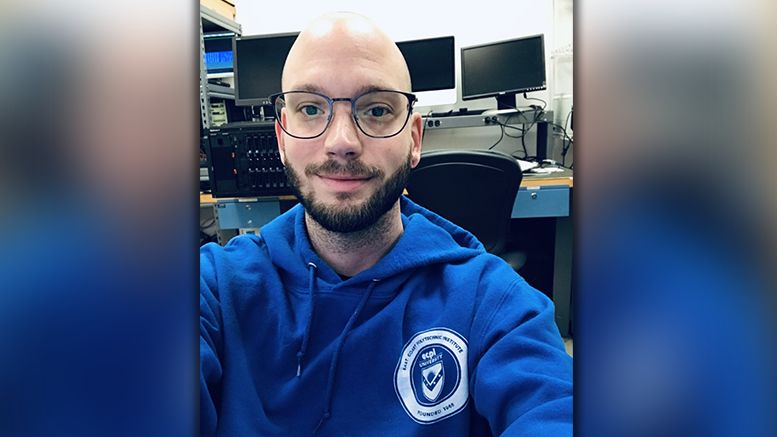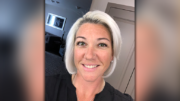
When he first learned he would be switching to a remote classroom, Greensboro student Mike Miller admits he was a bit worried, but soon realized he was in good hands. “Everyone has done an amazing job,” says Mike. “I still feel I am receiving the quality education I expect and deserve. I am proud to say that ECPI kept its promise and we have been able to continue forward on our educational journey. Yes, there were a few hiccups and bumps on the road, but to me it feels as if the transition has been seamless.”
“I still feel I am receiving the quality education I expect and deserve. I am proud to say that ECPI kept its promise and we have been able to continue forward on our educational journey. Yes, there were a few hiccups and bumps on the road, but to me it feels as if the transition has been seamless.”
– Greensboro Campus Student Mike Miller

While ECPI University’s advanced learning platforms and simulation software have certainly had a positive effect, there are human elements that transcend technology. “I have tried to keep things as consistent as possible and get the students into a routine of what to expect,” says Computer and Information Science faculty member Dr. Jennifer Gentry. “I think that as an educator, it is my job to make this transition as painless as possible. This consistency has enhanced the students’ understanding of what is being expected of them.
“I have communicated to them that expectations have not changed. They are expected to attend class, complete work, ask questions, and understand the material. The delivery of class is all that has changed. I promptly begin attendance at 8:00 AM and lecture directly after, which is consistent with what I did in person, only we are using the Microsoft Teams environment now. Again, I think this consistency has helped ease the concerns of the students that we may not be together, but class is still run the same way and they have that solid foundation of knowing what is expected of them.”
“The biggest take away for all of us is that we are all in the same boat. We are all having challenges of learning to take classes with kids in the background, pets barking, or lawn services going on under your window. I think the transparency of what we are struggling with individually helps everyone to feel less weak in what we are able to accomplish, and stronger as a whole.”
– Dr. Jennifer Gentry, Greensboro Campus CIS Faculty Member
Students Anthony Myers seem to appreciate that. “My professors have been there to answer any questions or concerns we may have,” says Anthony. “I think they have done a wonderful job considering this happened two weeks into a term with hardly any setbacks. There have been very few changes to our daily routine, except not having to drive an hour to class and actually be on campus.”
Dr. Gentry says the hardest change is the absence of “water cooler” communication, the opportunity to get to know each other on a personal level. ”I try to open the lectures early and have small talk conversations or ice breakers with the students, encouraging them to participate,” she says. “We have talked about everything from movies we are watching, video games we are into, struggles with homeschooling children, where to find toilet paper, to our likes and dislikes about this environment. I feel that this has helped everyone involved feel less isolated and understand that we are not alone in this; everyone has had struggles both in class and outside of class.
“I have also tried to have one-on-one time with each student during the time of class when they are working on labs. Whether it’s a question as simple as ‘How are you doing? How are the kids doing? or even ‘Are you doing okay?’ I think it makes a connection with the student so they feel comfortable reaching out if they have questions. I am used to being able to see those quizzical looks on faces, or overhear side conversations to know when I might need to jump in. So in turn, I just bug each student at least once a class even if it just to make small talk. This creates a personal connection so that students feel comfortable to ask questions or to ask for help. I usually hop around to the various group meetings and have heard all types of conversations.
“The biggest take away for all of us is that we are all in the same boat. We are all having challenges of learning to take classes with kids in the background, pets barking, or lawn services going on under your window. I think the transparency of what we are struggling with individually helps everyone to feel less weak in what we are able to accomplish, and stronger as a whole.”








Be the first to comment on "Maintaining Structure and Expectations, Students Moving Toward Graduation"